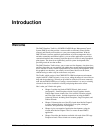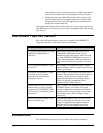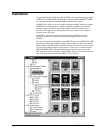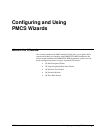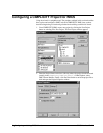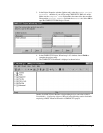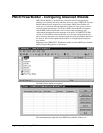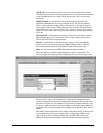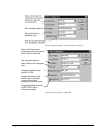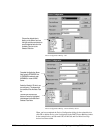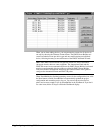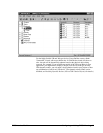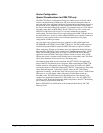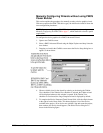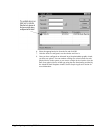
PMCS Interface Toolkit Configuring and Using PMCS Wizards • 9
Add Device – use this button to create a new device in your application. You can
also add a device by double clicking any empty line in the device information section
of the PowerBuilder screen, or right clicking and selecting "Add" from the drop
down menu.
Modify Selected – use this button to change the Description, Resource, and
application information for an existing (selected) device. You can also modify a
device’s configuration by double-clicking a listed device, or by right-clicking an
existing device and selecting "Modify Selected" from the drop down menu. Device
Name and Device Type cannot be modified once a device is created. If you need to
change the device name or device type, you must delete the selected device and add
a new one.
Delete Selected – use this button to completely remove the selected device and its
points from the project. You also delete a device by right clicking and selecting
"Delete Selected" from the drop down menu.
Refresh – use this button to refresh the display of devices in the PowerBuilder
display. You can also refresh the display by right clicking anywhere within the
device information area and selecting "Refresh" from the drop down menu.
Help – use this button to access PMCS Power Builder help information.
Select the Add Device button to begin adding device points to this project. The
Device Configuration dialog appears, prompting you to select a device type to add:
Select the device type to add, and the Device Configuration dialog dynamically
expands to display the device-specific configuration parameters. For example, while
most devices require only five parameters (Type, Name, Description, Resource, and
the Server's Application name), some more complex device types require additional
parameters, such as selecting which Tabs will appear on the Tabular wizard screen at
runtime.
Most PMCS Advanced Wizards share a similar configuration dialog, as shown in the
first example below. However, as mentioned above, some more complex device
types such as the Universal Relay, Multilin 369, and EPM 7700, require some
additional configuration information, and these examples are shown separately.



